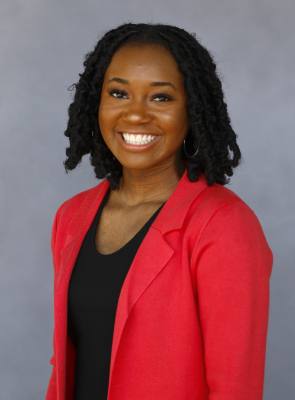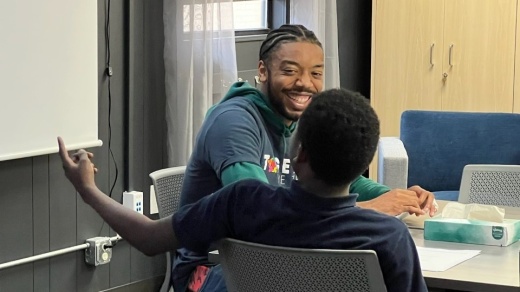Prior to the program, there were several campuses that had either individuals or organizations volunteering to mentor students. Part of the goal in creating FAM was to ensure every mentor had the same training and guidelines to follow, Ford said.
The program is in the early stages of recruiting volunteers to pair with students of all ages. As of mid-December, there were about 35 mentors, most of them being people who were volunteers prior to FAM, Ford said.
He added that his goal is to have mentors at every school.
“We’re looking for persons who are just willing to give of their heart and their time and be committed to at least a yearlong adventure,” Ford said.
Once applicants pass a background check, they attend a 40-minute training led by Ford. The session covers topics such as do’s and don’ts and how to report emergencies. Ford also leads an activity that demonstrates the importance of attention to detail. He pairs mentors and has them observe their partners for about 15 seconds. Afterward, they stand back to back and each person changes something about their appearance—for example, removing a watch or untying a shoe. Then the pair faces each other again and tries to identify what changed.
“The main point of it is to share with them how important it is to be present for that short, 30-minute time period and be conscious and recognize things that they may see,” Ford said. “If you want to build trust and relationship, then you recognize those things.”
Mentors have a minimum time commitment of one 30-minute session with their mentee each week. Some mentors meet more frequently, and some volunteers have two mentees.
During the application process, volunteers have the option to select in what area they would like to focus: academic or whole child. Academic mentors provide college and/or career guidance. Whole child mentors provide social and emotional support in addition to academic support.
“Sometimes whenever people think of mentoring, if it’s not academic, they automatically think that a student has a problem and that they have to fit the role of a counselor or social worker,” Ford said. “We want to make sure we encourage them that is not their role as a mentor. Anyone is able to be a mentor. ... We just encourage them to just be authentic.”
Ford added that the district is accepting mentors from outside of Frisco. Anyone who works in or near the community is welcome to apply.
Wendy Scott, a Richardson resident, had her first session with a ninth grader at Emerson High School in early December. She said the meeting went well and set the foundation for future topics to discuss with her mentee.
“I didn’t have this program in high school, and it’s amazing that there’s a program like that because sometimes, you might want to talk to a third party,” Scott said. “It’s very positive, for sure.”
More information, including how to sign up for upcoming mentor trainings, can be found at www.friscoisd.org/departments/guidance-and-counseling/achieve-mentoring-program.





